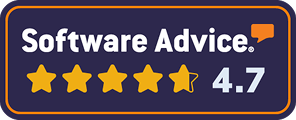Fraud Investigator
Resume Template
Create a winning impression with our Harvard University Approved template for Fraud Investigator.
Fraud Investigator
Resume Template
Create a winning impression with our Harvard University Approved template for Fraud Investigator.


Join the Course
Fraud Investigator Resume Sample (2025)
How to Present Your Contact Information
- Full name.
- Professional email address (avoid unprofessional ones).
- Link to your portfolio, LinkedIn, or relevant online profiles (if applicable).
- Phone number with a professional voicemail.
How to Write a Great Fraud Investigator Resume Summary
Dedicated Fraud Investigator with over 5 years of experience in uncovering fraudulent activities and implementing mitigation measures. Proven track record of reducing fraud losses by 30% through meticulous investigations and advanced forensic techniques. Aiming to leverage my analytical skills and keen attention to detail to contribute to the security efforts of a leading financial institution.
What Skills to Add to Your Fraud Investigator Resume
Technical Skills:
- Fraud detection software
- Forensic accounting
- Data analysis
- Legal compliance
- Risk assessment
Soft Skills:
- Attention to detail
- Analytical thinking
- Communication skills
- Problem-solving
- Integrity
What are Fraud Investigator KPIs and OKRs, and How Do They Fit Your Resume?
KPIs (Key Performance Indicators):
- Number of successfully resolved fraud cases
- Percentage reduction in fraud losses
- Average time to detect and address fraud incidents
OKRs (Objectives and Key Results):
- Increase the detection rate of internal fraud by 20% in the next quarter
- Implement a new fraud prevention protocol within 6 months to reduce external fraud by 15%
- Conduct 10 fraud awareness workshops to educate staff per year
How to Describe Your Fraud Investigator Experience
List your experience in reverse chronological order. Focus on achievements, responsibilities, and quantifiable outcomes.
Right Example:
- Investigated over 100 fraud cases, achieving a 95% resolution rate by collaborating with cross-functional teams and utilizing advanced forensic tools.
- Developed and implemented a fraud detection system that reduced financial losses by 30% over a year.
- Trained junior investigators on fraud detection techniques, resulting in a 50% decrease in initial investigation errors.
Wrong Example:
- Looking into fraud cases during work.
- Worked on fraud detection but without specific targets or achievements noted.
- Trained some staff without setting clear outcomes or benefits.







